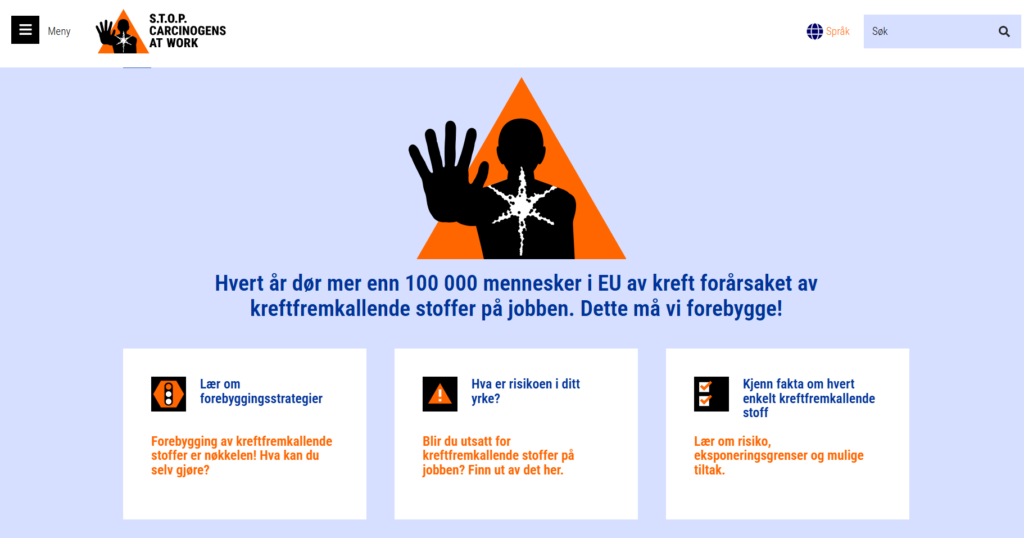
The National Institute of Occupational Health in Norway (STAMI) reports that around 1,000 new cancer cases each year in Norway may be work-related.
Industries and occupations connected to construction and industrial sectors show the highest incidence. However, the risk of work-related cancer extends across a wide range of other occupations and sectors.
Across the EU, approximately 120,000 people are diagnosed with cancer each year as a result of exposure to carcinogens at work, and more than 100,000 die from work-related cancer annually.
A large number of today’s work-related cancer is the result of past exposures, often decades back. Many of these cases could have been avoided through systematic prevention.
European initiative on work-related cancer
To reduce the risk of work-related cancer, the Roadmap on Carcinogens (RoC) was established in 2016. The initiative brings together the European Commission, social partners, national authorities and research institutions.
STAMI joined the initiative in 2024 to contribute to knowledge development in this field and to raise awareness of work-related cancer in Norway. The aim is to increase awareness, share knowledge and develop solutions that help reduce exposure to carcinogens.
The website stopcarcinogensatwork.eu is the main tool of this collaboration – and is now available in Norwegian.
This means that employees in different industries can easily find out which carcinogens they may be exposed to in their sector – and read about preventive measures tha can be implemented to reduce the risk.
Why language matters for prevention
As the Norwegian partner, STAMI has been responsible for verifying the list of carcinogens on the website, as well as ensuring the accuracy of the translation of occupations and sectors into Norwegian. This helps make the content relevant and user-friendly for Norwegian companies.
Therese Hanvold, Director General of STAMI, welcomes the launch of the Norwegian version and emphasises the importance of access in one’s own language
“Language – and the ability to understand – is key to ensuring that knowledge is actually put into practice. This translation is an important step in making knwoledge about carcinogens more accessible for Norwegian companie and employees,” Director General Hanvold said.
Beyond the website: European collaboration continues
STAMI also recently hosted a pan-European meeting in Oslo on work-related cancer, bringing together leading institutions such as the International Agency for Research on Cancer (IARC), national authorities, researchers and social partners. The focus was on sharing knowledge, presenting the latest research and strengthening prevention efforts towards 2027..
Director General Hanvold highlights the importance of being part of such communities:
“For STAMI, it is of great value to be part of this European knowledge-sharing initiative. It gives us insight into a community working to use communication and information tools to reduce work-related cancer across Europe,” Director General Hanvold concludes.
